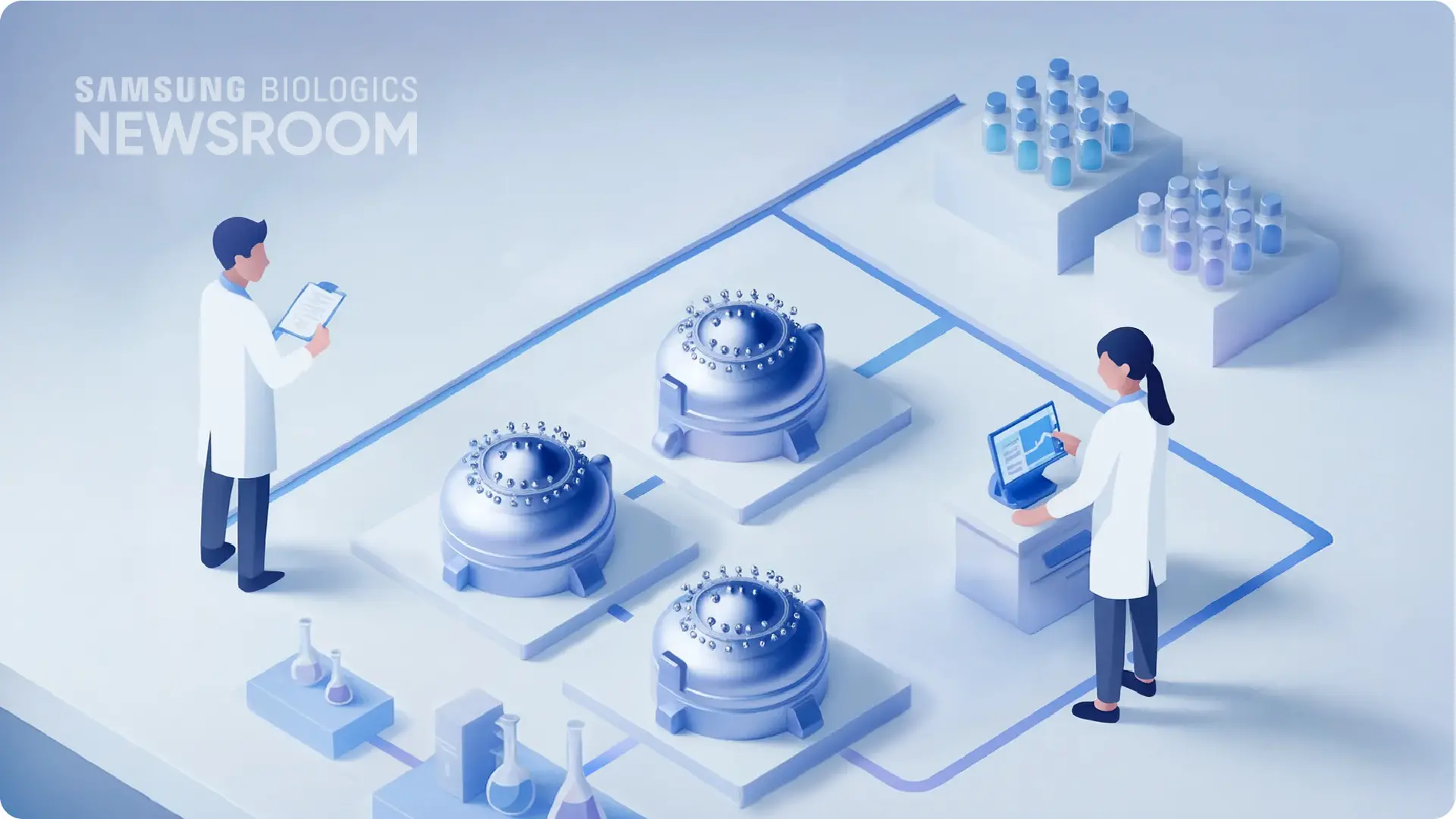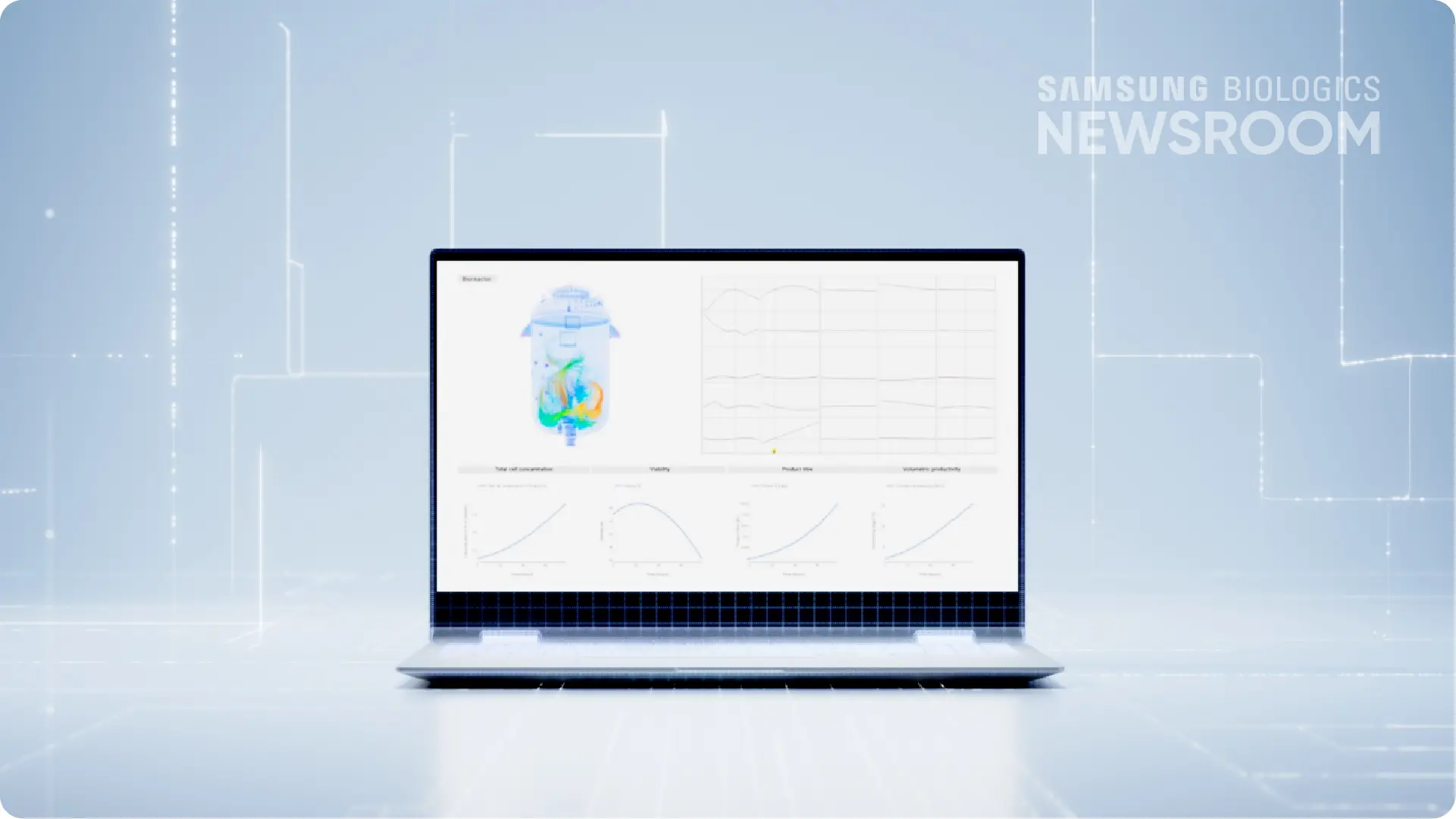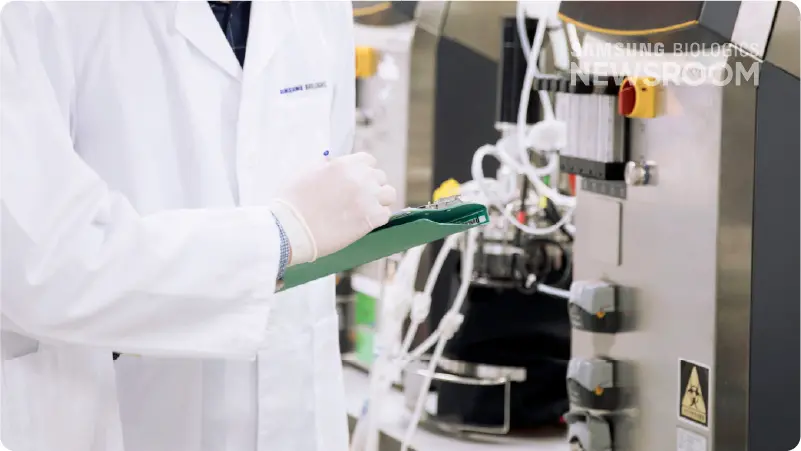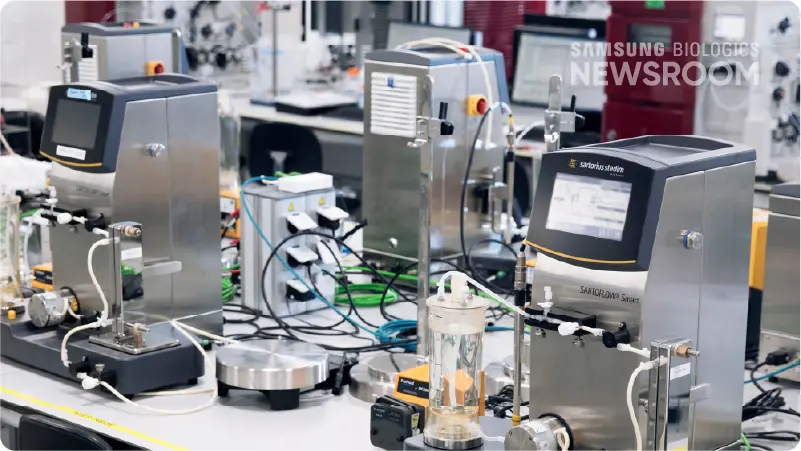
As biopharmaceutical pipelines grow more complex, the need for robust, scalable, and agile technology transfers become increasingly critical to ensure the on-time delivery of quality products. Modalities such as multispecific antibodies, fusion proteins, mRNA-based biologics, and antibody drug conjugates (ADCs) offer significant therapeutic promise, but their unique structures introduce new challenges in scale-up, manufacturing readiness, and regulatory compliance.
Leveraging extensive technology transfer experience at various scales and for diverse molecules, Samsung Biologics has established a framework that combines structured, modality-specific approaches with digitalized operations to facilitate seamless transfer, while ensuring quality and speed.
Early alignment for successful transfer
Complex modalities differ significantly from monoclonal antibodies in structure and function, resulting in greater process variability and analytical complexity. For example, ADCs may require specialized solvents or buffer systems to accommodate the physicochemical properties of the conjugated payload, necessitating precise material control, containment, and process adaptation. To effectively deliver these complex products from discovery to commercialization, contract development and manufacturing organizations (CDMOs) must pair scientific expertise with close collaboration and strong technical support.
“Unlike well-understood, defined small molecules, transfers involving novel and emerging modalities carry greater uncertainty and variability,” said Rinbok Wi, Lead Scientist for MSAT Downstream Technology Transfer. “By engaging early on and planning transfer activities with clearly defined milestones, Samsung Biologics can adapt processes effectively while ensuring compliance and consistency.”
These efforts are further supported by cross-functional collaboration. “We bring together experts from MSAT, development, quality, and project management to align on project requirements, identify risks, and set a clear execution plan from the outset,” said Doho Kim, Senior Scientist for New Modalities.

Flexibility embedded into facilities and processes
From formulation characteristics to process conditions, there are many considerations in biologics manufacturing. Therefore, flexibility in both infrastructure and operations is essential for smooth and timely transfer.
At Samsung Biologics, engineering and verification runs are performed early to confirm facility fit, reducing the risk of disruption before good manufacturing practice (GMP) execution. The company's modular facilities and optimized processes allow for rapid modification of equipment and configuration of single-use systems to meet different scales and requirements, while standardized and digitalized documentation maintains consistency,
“By continuously aligning resources, equipment, and strategies, we can effectively accommodate diverse program needs, helping clients move forward with greater speed and confidence,” said Kim.
In parallel, raw materials and single-use components are dual-sourced to minimize variability and secure stable supply. This approach shortens transfer timelines, reduces risk, and provides clients with a reliable path from development to GMP manufacturing.

Enhanced predictability through digital innovation
Digitalization is an integral part of Samsung Biologics’ technology transfer model. The company uses a suite of digital tools to enhance decision-making, strengthen risk management, and improve collaboration.
Monte Carlo simulation–based mass balance modeling is applied early in the process to assess facility fit and equipment suitability by simulating parameter variability and identifying potential constraints. This approach helps teams determine whether a transferred process can proceed as-is or requires adjustment.
Multivariate data analysis supports real-time monitoring and predictive quality control, enabling early detection of deviations and process optimization across pilot and commercial scales.
Computational fluid dynamics (CFD) is also applied to simulate changes in fluid dynamics, mixing times, and scale-up scenarios. “CFD allows us to evaluate client-requested changes, diagnose potential issues, and continuously improve facility design and equipment based on what we’ve learned from simulation results,” Kim explained.
Additionally, transparency is further enhanced through the Samsung Biologics Client Portal, which consolidates batch records, test results, and raw material data into a secure, client accessible interface. “This improves communication and ensures alignment throughout the transfer process.” Wi added.
Integrated approach for seamless client support
With integrated capabilities across development, manufacturing, and aseptic fill/finish, Samsung Biologics can help mitigate handoff risks and streamline supply chain logistics. Unified project oversight and integrated quality systems enable continuity from early-stage development through commercial production.
Each transfer is executed within a structured framework, with clearly defined success criteria, timelines, and communication protocols. Face-to-face kickoff meetings, documented knowledge exchanges, and systematic risk assessments ensure alignment and early issue resolution.
Regulatory preparedness is built from the start. Samsung Biologics supports process validation and pre-approval inspection readiness through the development of validation master plans and chemistry, manufacturing, and controls (CMC) strategies. During validation campaigns, real-time monitoring ensures rapid response to deviations, supporting a smooth transition to regulatory submission and product launch.
“Successful transfer is not just about execution—it’s about also ensuring continuity, reducing risk, and enabling commercial readiness,” said Wi. “Our approach combines infrastructure, expertise, and digital tools to help clients reach their goals faster and with confidence.”
With an extensive track record of successful transfers across complex modalities and a commitment to operational excellence, Samsung Biologics is optimally-positioned to support the evolving needs of biopharma innovators. From lab-scale processes to full-scale GMP manufacturing, the company offers a streamlined and scalable path forward for next-generation biologics.

As biopharmaceutical pipelines grow more complex, the need for robust, scalable, and agile technology transfers become increasingly critical to ensure the on-time delivery of quality products. Modalities such as multispecific antibodies, fusion proteins, mRNA-based biologics, and antibody drug conjugates (ADCs) offer significant therapeutic promise, but their unique structures introduce new challenges in scale-up, manufacturing readiness, and regulatory compliance.
Leveraging extensive technology transfer experience at various scales and for diverse molecules, Samsung Biologics has established a framework that combines structured, modality-specific approaches with digitalized operations to facilitate seamless transfer, while ensuring quality and speed.
Early alignment for successful transfer
Complex modalities differ significantly from monoclonal antibodies in structure and function, resulting in greater process variability and analytical complexity. For example, ADCs may require specialized solvents or buffer systems to accommodate the physicochemical properties of the conjugated payload, necessitating precise material control, containment, and process adaptation. To effectively deliver these complex products from discovery to commercialization, contract development and manufacturing organizations (CDMOs) must pair scientific expertise with close collaboration and strong technical support.
“Unlike well-understood, defined small molecules, transfers involving novel and emerging modalities carry greater uncertainty and variability,” said Rinbok Wi, Lead Scientist for MSAT Downstream Technology Transfer. “By engaging early on and planning transfer activities with clearly defined milestones, Samsung Biologics can adapt processes effectively while ensuring compliance and consistency.”
These efforts are further supported by cross-functional collaboration. “We bring together experts from MSAT, development, quality, and project management to align on project requirements, identify risks, and set a clear execution plan from the outset,” said Doho Kim, Senior Scientist for New Modalities.


Flexibility embedded into facilities and processes
From formulation characteristics to process conditions, there are many considerations in biologics manufacturing. Therefore, flexibility in both infrastructure and operations is essential for smooth and timely transfer.
At Samsung Biologics, engineering and verification runs are performed early to confirm facility fit, reducing the risk of disruption before good manufacturing practice (GMP) execution. The company's modular facilities and optimized processes allow for rapid modification of equipment and configuration of single-use systems to meet different scales and requirements, while standardized and digitalized documentation maintains consistency,
“By continuously aligning resources, equipment, and strategies, we can effectively accommodate diverse program needs, helping clients move forward with greater speed and confidence,” said Kim.
In parallel, raw materials and single-use components are dual-sourced to minimize variability and secure stable supply. This approach shortens transfer timelines, reduces risk, and provides clients with a reliable path from development to GMP manufacturing.

Enhanced predictability through digital innovation
Digitalization is an integral part of Samsung Biologics’ technology transfer model. The company uses a suite of digital tools to enhance decision-making, strengthen risk management, and improve collaboration.
Monte Carlo simulation–based mass balance modeling is applied early in the process to assess facility fit and equipment suitability by simulating parameter variability and identifying potential constraints. This approach helps teams determine whether a transferred process can proceed as-is or requires adjustment.
Multivariate data analysis supports real-time monitoring and predictive quality control, enabling early detection of deviations and process optimization across pilot and commercial scales.
Computational fluid dynamics (CFD) is also applied to simulate changes in fluid dynamics, mixing times, and scale-up scenarios. “CFD allows us to evaluate client-requested changes, diagnose potential issues, and continuously improve facility design and equipment based on what we’ve learned from simulation results,” Kim explained.
Additionally, transparency is further enhanced through the Samsung Biologics Client Portal, which consolidates batch records, test results, and raw material data into a secure, client accessible interface. “This improves communication and ensures alignment throughout the transfer process.” Wi added.
Integrated approach for seamless client support
With integrated capabilities across development, manufacturing, and aseptic fill/finish, Samsung Biologics can help mitigate handoff risks and streamline supply chain logistics. Unified project oversight and integrated quality systems enable continuity from early-stage development through commercial production.
Each transfer is executed within a structured framework, with clearly defined success criteria, timelines, and communication protocols. Face-to-face kickoff meetings, documented knowledge exchanges, and systematic risk assessments ensure alignment and early issue resolution.
Regulatory preparedness is built from the start. Samsung Biologics supports process validation and pre-approval inspection readiness through the development of validation master plans and chemistry, manufacturing, and controls (CMC) strategies. During validation campaigns, real-time monitoring ensures rapid response to deviations, supporting a smooth transition to regulatory submission and product launch.
“Successful transfer is not just about execution—it’s about also ensuring continuity, reducing risk, and enabling commercial readiness,” said Wi. “Our approach combines infrastructure, expertise, and digital tools to help clients reach their goals faster and with confidence.”
With an extensive track record of successful transfers across complex modalities and a commitment to operational excellence, Samsung Biologics is optimally-positioned to support the evolving needs of biopharma innovators. From lab-scale processes to full-scale GMP manufacturing, the company offers a streamlined and scalable path forward for next-generation biologics.
Share article
Related Content